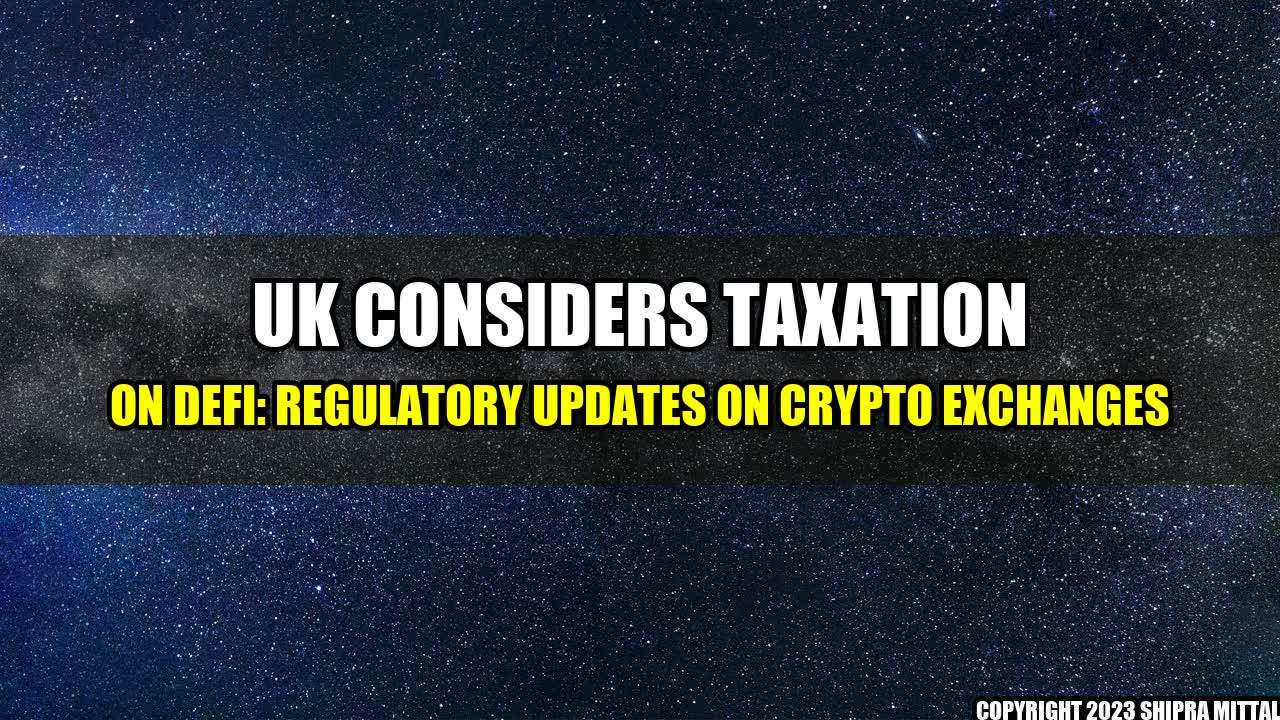John had been investing in cryptocurrencies for a while, and he was excited about the potential of decentralized finance (DeFi). He had just read an article on how DeFi was transforming the way financial services are delivered, offering more transparency, lower costs, and higher returns than traditional banking. However, he was also aware of the risks that came with investing in a nascent and largely unregulated market.
As John was browsing the news, he stumbled upon an article on Lexology that caught his attention. The title read "UK Seeks Input on DeFi Taxation: Regulatory Updates on OFAC Fines Crypto Exchange, SEC, DOJ, and CFTC." He clicked on the link, and the article opened up a world of information that he had never seen before.
The article highlighted the UK government's recent consultation paper on crypto assets, which proposed a new regulatory framework to bring DeFi and stablecoins under its supervision. The paper also sought feedback from stakeholders on the taxation of DeFi activities, including staking, liquidity provision, and yield farming.
John was surprised to learn that the UK was not the only country considering a tax on DeFi. In the US, the IRS had issued guidance that cryptocurrency staking rewards were taxable as income. This meant that cryptocurrency investors who participated in staking would have to report their earnings on their tax returns, regardless of whether they actually received any cash.
The article also covered the recent fines imposed by OFAC on two crypto exchanges, BitPay and BitGo, for violating US sanctions laws. The fines amounted to $507,375 and $98,830, respectively, and highlighted the growing scrutiny on crypto businesses in relation to financial crime and national security risks.
The article went on to discuss the SEC's ongoing enforcement actions against Ripple Labs, alleging that the company had conducted an unregistered securities offering in its sale of XRP tokens. The case raised questions about the regulatory status of cryptocurrencies and sparked debates on whether they should be considered securities, commodities, or currencies.
Finally, the article mentioned the CFTC's investigation into Binance, one of the world's largest crypto exchanges, for allegedly allowing US residents to trade derivatives without registering with the agency. The case showed that even established crypto businesses were not immune to regulatory oversight and enforcement actions.
After reading the article, John realized that the crypto industry was facing complex and diverse challenges that required careful attention and analysis. He also acknowledged that regulators had a role to play in protecting investors, maintaining financial stability, and combating illicit activities in the market.

Akash Mittal Tech Article
Share on Twitter Share on LinkedIn